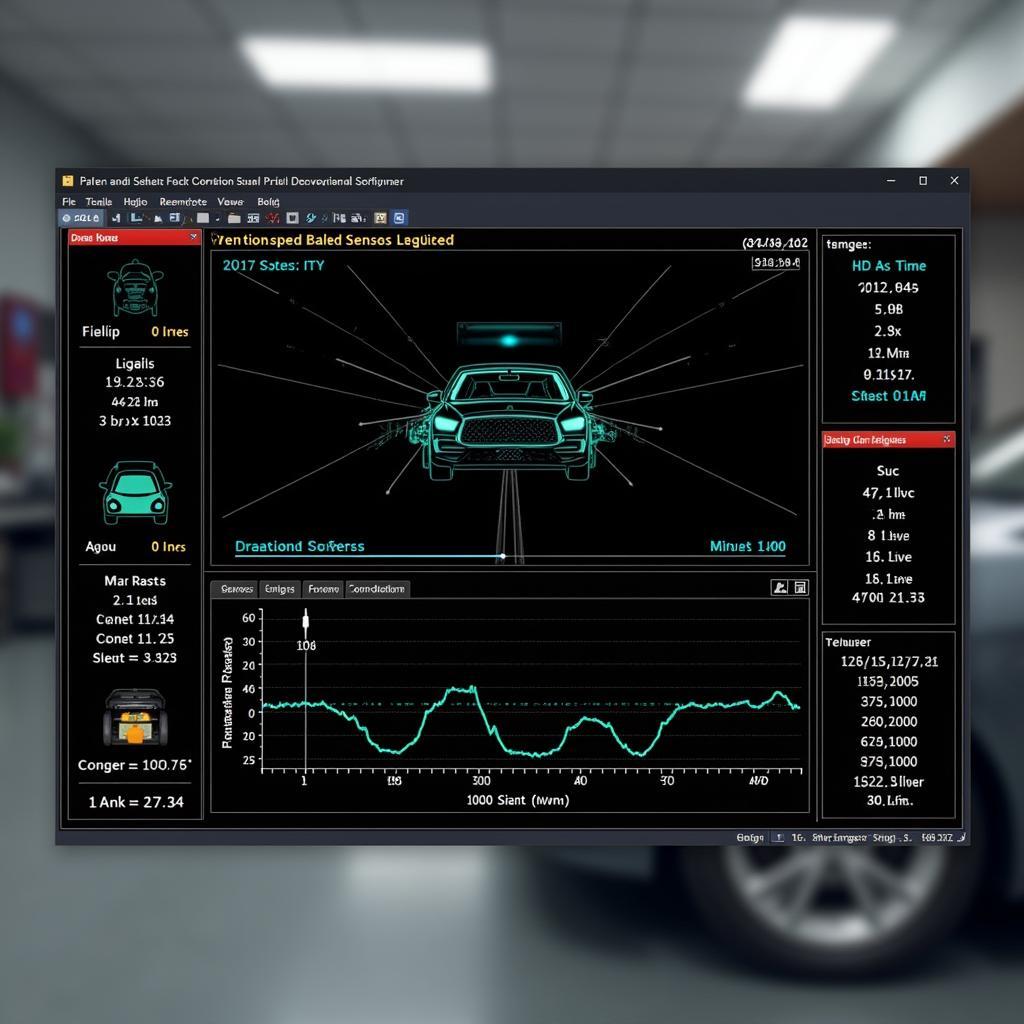A comprehensive toolkit for car diagnostics is crucial for any car enthusiast or professional mechanic. Whether you’re troubleshooting a check engine light or performing routine maintenance, having the right tools can save you time, money, and frustration. This guide will explore the essential tools for car diagnostics, from basic handheld scanners to advanced diagnostic software.
Understanding the Importance of a Car Diagnostic Toolkit
A car diagnostic toolkit is more than just a collection of gadgets; it’s an investment in the health and longevity of your vehicle. These tools allow you to pinpoint issues quickly and accurately, preventing minor problems from escalating into major repairs. With the increasing complexity of modern vehicles, a reliable toolkit for car diagnostics is no longer a luxury but a necessity.
Basic Tools Every Car Owner Should Have
Even if you’re not a professional mechanic, a few basic diagnostic tools can empower you to understand your car better. These include:
- OBD-II Scanner: This handheld device plugs into your car’s OBD-II port and reads diagnostic trouble codes (DTCs). These codes provide clues about the potential source of a problem.
- Multimeter: A multimeter measures voltage, current, and resistance, helping you diagnose electrical issues.
- Test Light: A simple but effective tool for checking circuits and fuses.
- Code Reader: While similar to an OBD-II scanner, a dedicated code reader often provides more detailed information about DTCs.
Advanced Diagnostic Tools for Professional Mechanics
Professional mechanics require a more sophisticated toolkit for car diagnostics to handle complex repairs. These tools include:
- Professional-Grade Scan Tools: These offer advanced features like live data streaming, bi-directional control, and access to manufacturer-specific codes.
- Oscilloscope: An oscilloscope visualizes electrical signals, allowing you to diagnose complex sensor and circuit problems.
- Pressure Gauge Set: Essential for testing fuel pressure, oil pressure, and other critical system pressures.
- Vacuum Gauge: Used to diagnose vacuum leaks and monitor engine performance.
Choosing the Right Toolkit for Car Diagnostics: Factors to Consider
Selecting the right toolkit depends on your needs and budget. Consider the following:
- Your Level of Expertise: Are you a DIY enthusiast or a professional mechanic?
- Types of Vehicles You Work On: Do you specialize in a particular make or model?
- Budget: Tool kits can range from affordable basic sets to expensive professional-grade equipment.
- Features: Consider the specific features you need, such as live data streaming, bi-directional control, and code clearing capabilities.
What is a good basic toolkit for car?
A good basic toolkit for car diagnostics might include an OBD-II scanner, a multimeter, a test light, and a basic set of hand tools. This combination allows you to address common car problems and perform routine maintenance checks.
What is the best professional scan tool for car diagnostics?
The “best” professional scan tool depends on individual needs and preferences. However, popular brands known for their quality and functionality include Snap-on, Autel, and Launch. These tools often offer advanced features and extensive vehicle coverage.
“Investing in high-quality diagnostic tools is essential for efficient and accurate car repairs,” says John Smith, a certified master technician with over 20 years of experience. “The right tools can significantly reduce diagnostic time and improve the overall quality of your work.”
 Car Diagnostic Software Interface
Car Diagnostic Software Interface
Conclusion: Empower Yourself with the Right Toolkit for Car
A well-equipped toolkit for car diagnostics is an invaluable asset for any car owner or professional mechanic. By investing in the right tools, you can quickly and accurately diagnose problems, saving time and money on repairs. Whether you’re a DIY enthusiast or a seasoned professional, choose a toolkit that meets your specific needs and empowers you to maintain your vehicle effectively. Remember, a reliable toolkit for car diagnostics is not just an expense; it’s an investment in the health and performance of your car.
FAQ:
- What does OBD-II stand for? On-Board Diagnostics, Second Generation.
- Do I need a professional scan tool if I’m not a mechanic? No, a basic OBD-II scanner is usually sufficient for DIY enthusiasts.
- Can a diagnostic toolkit help me prevent future car problems? Yes, by allowing you to identify and address minor issues before they become major repairs.
- What are some common car problems that a diagnostic toolkit can help me solve? Check engine light issues, misfires, electrical problems, and sensor malfunctions.
- Where can I buy a car diagnostic toolkit? Auto parts stores, online retailers, and specialty tool suppliers.
- How often should I use my car diagnostic toolkit? Regularly, especially if you notice any unusual performance issues or warning lights.
- Can a diagnostic toolkit tell me exactly what’s wrong with my car? It can provide valuable clues and point you in the right direction, but further investigation may be necessary.
Need help with your car diagnostics? Contact us via WhatsApp: +1(641)206-8880, Email: [email protected] or visit us at 910 Cedar Lane, Chicago, IL 60605, USA. Our 24/7 customer service team is ready to assist you. We also offer a wide selection of tool kits for sale and diagnostic services. Check out our other articles on car maintenance and repair on our website.

Leave a Reply